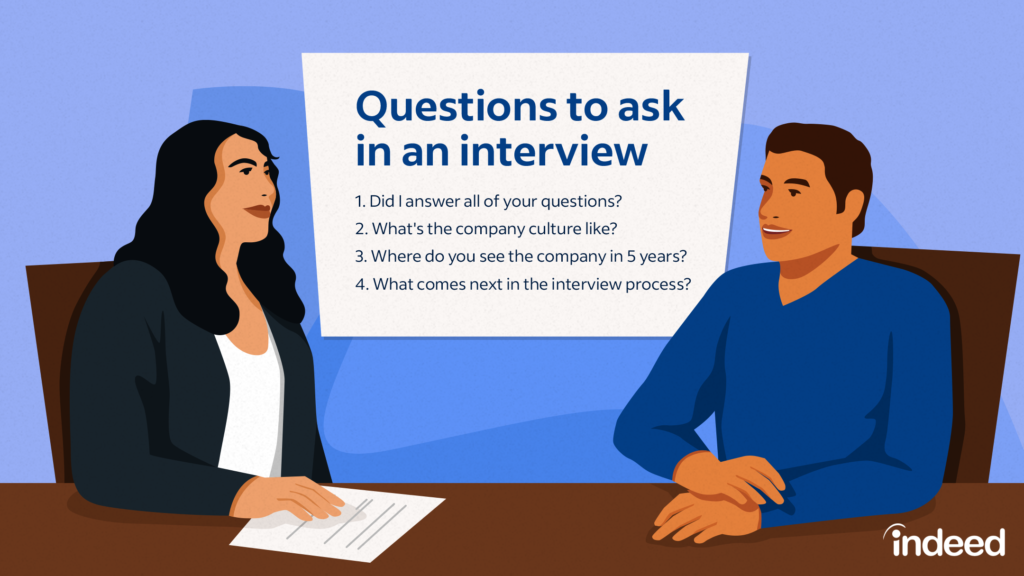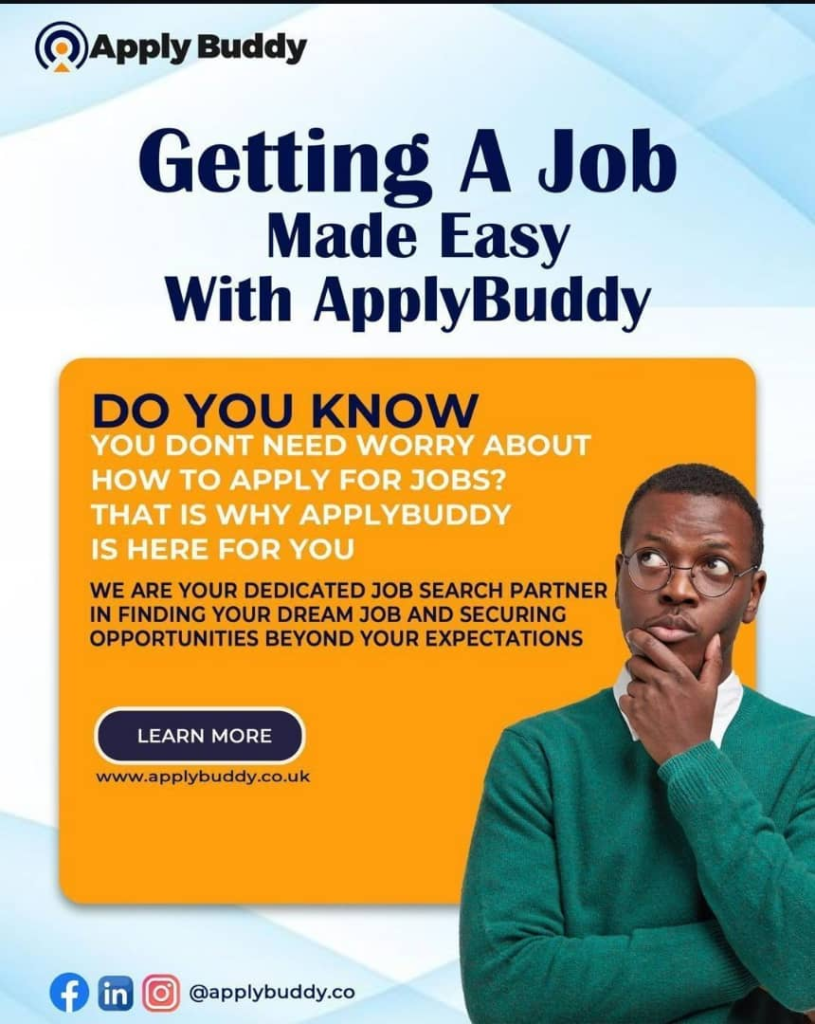The final phase of a job interview, where you get to ask the interviewer questions, is a pivotal moment that many underestimate. It’s a chance to showcase your curiosity, professionalism, and genuine interest in the company and the role.
At RKY Career, we are committed to supporting our clients through every phase of their career journey—from training and preparation to interviewing coaching and landing their dream jobs. Crafting and asking the right questions is an integral part of this process, and we’re here to help you succeed.
In this guide, we’ll explore how to ask thoughtful questions at the end of an interview, offer examples, and provide tips to make the most of this opportunity.
Why It’s Important to Ask Questions at the End of an Interview

Asking questions at the end of an interview is more than just a formality—it’s a critical element that can leave a lasting impression. Here’s why:
- Demonstrates Engagement: Asking thoughtful questions signals to the interviewer that you’re engaged, have done your homework, and are genuinely interested in the role and company. It shows you understand the company’s operations, values, and how you can contribute to its success.
- Clarifies Expectations: Interviews are a two-way street. Thoughtful questions help you gain insights into the job, work culture, and management style. This is your opportunity to clarify what will be expected of you and whether the company aligns with your career goals.
- Reflects Your Priorities: The questions you ask also convey your priorities. For instance, if you ask about professional growth, it indicates that you are motivated and eager to develop within the company. Questions about company culture suggest you’re thoughtful about where you want to work and how you want to fit into a team.
- Builds Rapport: An engaging dialogue in the interview helps build rapport between you and the interviewer. It shows that you value their time and perspective, opening the door to a more genuine conversation.
- Differentiates You from Other Candidates: Asking intelligent, well-researched questions sets you apart. While some candidates may skip this step or ask generic questions, thoughtful questions demonstrate your readiness and attention to detail.
Examples of Thoughtful Questions to Ask at the End of an Interview
To make a lasting impression, your questions need to be insightful and tailored to the role, company, and even the specific interviewer. Here are several categories of questions you can consider:
Questions About Company Culture
Understanding the company’s culture can help you assess whether you’d feel comfortable and motivated in that environment. Here are a few thoughtful questions to explore this area:
- “How would you describe the company culture, and what types of employees tend to thrive here?”
- “Can you share more about how the team collaborates? Is the work environment more independent or team-oriented?”
- “How does the company promote work-life balance for its employees?”
- “What are some of the company’s core values, and how are they implemented daily?”
By asking about company culture, you’re showing that you care about fitting into the organization’s ethos and team dynamics.
Read Also:
How to Talk About Your Skills in an Interview
Why You Are Struggling to Find a Job in the UK After Graduation
Questions About Growth and Development
Career growth and development are often key drivers for job satisfaction. Some examples include:
- “What kind of professional development opportunities does the company offer?”
- “How do you support employees in achieving their career goals?”
- “Are there any mentorship or coaching programs available?”
- “What does success look like in this role, and how is it measured?”
These questions help you understand the company’s commitment to employee development and whether it aligns with your personal growth aspirations.
Questions About Role-Specific Expectations
Understanding the day-to-day responsibilities of the role helps ensure that you know what you’re signing up for. You can ask:
- “What are the most immediate challenges the team is facing, and how would I be able to contribute to solving them?”
- “What does a typical day in this role look like?”
- “How does this position contribute to the company’s larger goals?”
- “Can you describe the team dynamics and how my role would fit within the team?”
These role-specific questions show that you’re forward-thinking and already envisioning how you will contribute to the company’s success.
How to Tailor Your Questions for Different Types of Interviews

HandshakeIt’s essential to adapt your questions based on the type of position you’re interviewing for—whether it’s entry-level, mid-level, or senior-level. This ensures your questions are relevant to the responsibilities and expectations of the role.
Entry-Level Positions
Your questions should focus on learning, growth, and understanding expectations for entry-roles. Here are some examples:
- “What key skills are you looking for in an ideal candidate?”
- “Are there opportunities for training or mentoring to help me grow in this role?”
- “How do you see this position evolving over the next year?”
- “What does success look like for someone in this position during their first six months?”
Entry-level candidates should focus on showing enthusiasm for learning and professional development, as these are the foundation for growth in most companies.
Mid-Level Positions
Mid-level roles often require more specialized skills, and the questions should reflect a focus on team dynamics, performance metrics, and advancement opportunities:
- “How is performance typically measured in this role?”
- “What immediate goals do you expect someone in this role to achieve?”
- “Can you tell me more about the team I’d be working with and how we’ll collaborate?”
- “Are there opportunities for growth into leadership roles within the company?”
At this level, candidates should demonstrate how their experience aligns with the company’s objectives while also showing interest in career progression.
Senior-Level Positions
For senior roles, the questions should delve deeper into leadership, strategy, and long-term goals. Here are some relevant examples:
- “How would you describe the leadership style here, and what is expected from someone in a leadership role?”
- “What are the company’s key objectives for the next few years, and how does this role contribute to achieving them?”
- “How does senior leadership support the teams in driving innovation and achieving success?”
- “What are some of the biggest challenges the leadership team faces?”
Also Read:
How to overcome Interview Anxiety and Project Confidence
How to Answer Difficult Interview Questions
Common Mistakes to Avoid When Asking Questions in an Interview

While asking questions is vital, there are a few common pitfalls that can inadvertently hurt your chances. Here’s what to avoid:
- Avoid Asking Questions Answered on the Website: Asking questions that are easily found on the company’s website or job description shows a lack of preparation. Instead, focus on topics that require deeper insight.
- Don’t Ask Too Many Personal Questions: While building rapport is important, avoid asking overly personal questions that could make the interviewer uncomfortable.
- Steer Clear of Questions About Salary or Benefits Too Early: Save discussions about compensation for later interviews unless the interviewer brings it up. Focus first on the role, the company, and how you can add value.
FAQs
What are some unique questions to ask during an interview?
Here are some unique questions that can set you apart:
- “How does this company celebrate successes, both big and small?”
- “What are some of the most exciting projects the team is working on right now?”
- “How do you handle feedback and performance reviews here?”
- “What is something that’s surprised you about working here?”
These questions show curiosity about the company’s internal dynamics and reflect your genuine interest in how things operate beyond the surface.
How can I develop personalized questions for a specific company?
To develop personalized questions, start by researching the company’s website, social media presence, and news mentions. Look for recent achievements, key initiatives, or challenges the company may be facing. Tailor your questions around these topics to demonstrate that you’ve done your homework. For example, if the company recently launched a new product, you could ask, “How has the recent product launch impacted the company’s goals for this year?”
What questions should I avoid asking in an interview?
Avoid asking questions about salary, vacation, or benefits too early in the interview process, as these topics can come across as self-centered if brought up prematurely. Also, steer clear of asking overly broad questions like “What does the company do?”—this demonstrates a lack of research.
How many questions should I ask at the end of an interview?
Aim to ask three to five thoughtful questions. This shows that you’re engaged without overwhelming the interviewer. It’s also a good idea to prepare a few extra questions in case some are answered during the interview.

Final Thoughts
Knowing how to ask thoughtful questions at the end of an interview can be a game-changer. It not only leaves a positive impression on the interviewer but also equips you with valuable information about the role and company. Whether you’re just starting your career, moving into a mid-level role, or aiming for a leadership position, the right questions can help you stand out and make an informed decision about your next career move.
At RKY Career, we are big on supporting our clients through every phase of their career journey—from training and interview preparation to helping them land their dream jobs. Asking the right questions is key to success, and we’re here to help you develop the skills to excel in every stage of the process.
Ready to start the proper training and kick-start your dream career?
Check out our Bootcamps which will help you gain practical work experience working collaboratively with other stakeholders in the fields below. With over 500+ success stories, we can’t wait to work with you and share your success story too!
Related Posts: How to Prepare for Behavioural Interview Questions: Key Strategies for Success
